Obituary: Glen Campbell
- Published
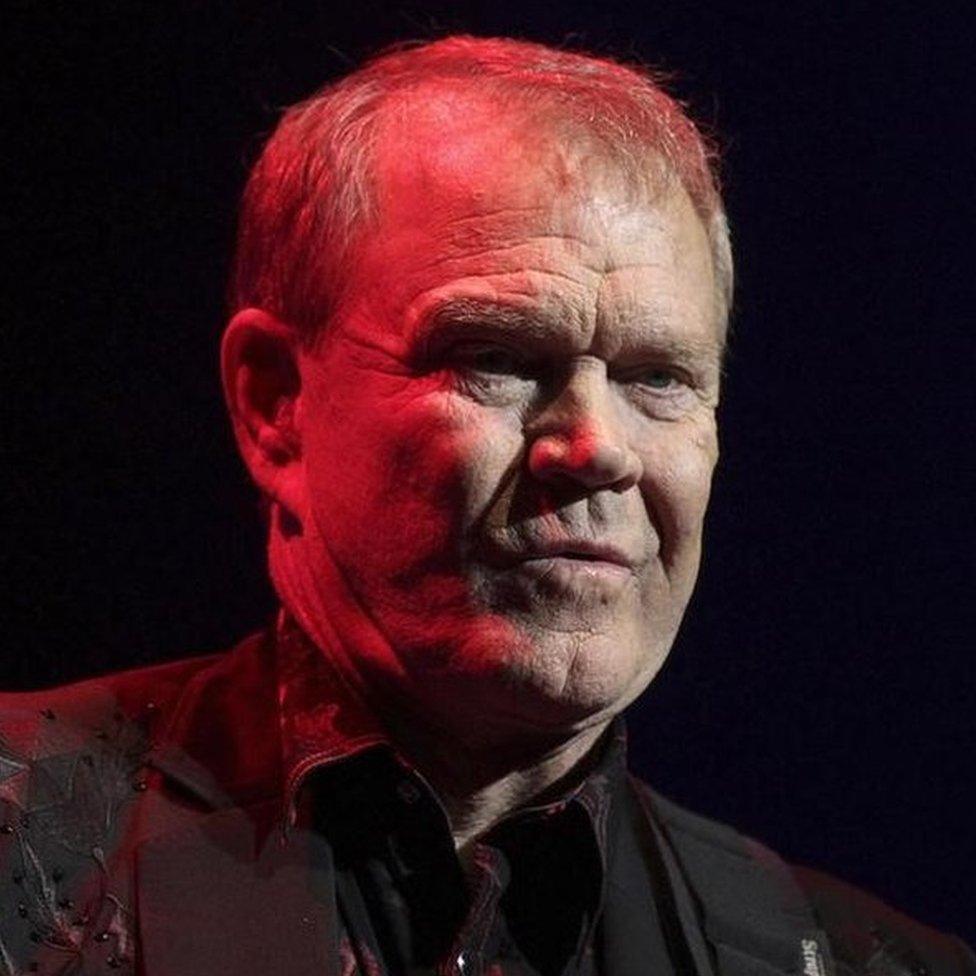
Glen Campbell was one of the most successful country singers of his generation.
In a career spanning six decades, he released more than 70 albums and amassed nine Grammy awards.
His melodic songs found success in the pop charts with hits including Galveston, Rhinestone Cowboy and Wichita Lineman.
And he also made a foray into acting, notably alongside John Wayne in the film True Grit.
Glen Travis Campbell was born in Pike County, Arkansas, on 22 April 1936, the seventh of 12 children.
His father was a sharecropper, a tenant who paid his rent with a proportion of the crops that he grew.
His first guitar cost $7 from a Sears catalogue and he whiled away the time teaching himself to play.
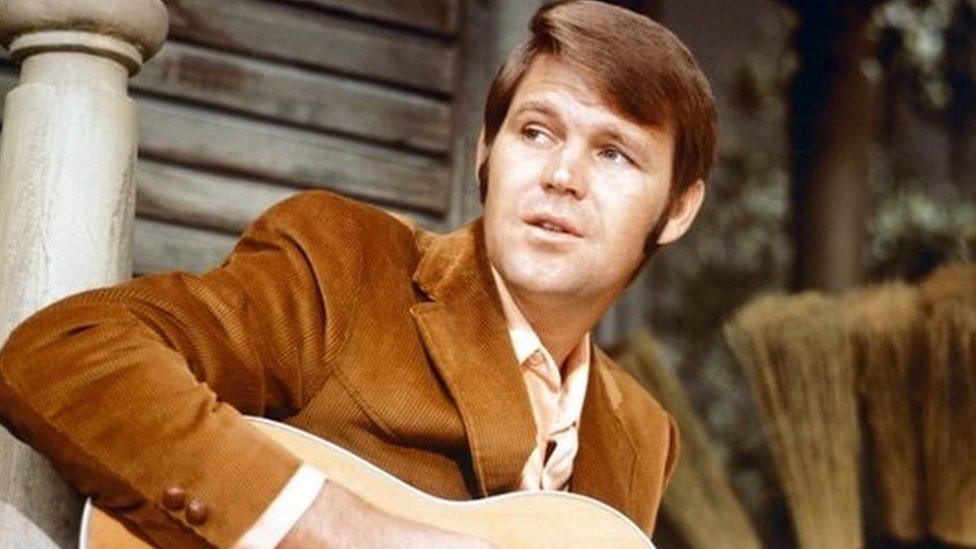
By the mid 1960s he'd established himself as a solo artist
"We didn't have power in the house, but we did have an old battery radio. And whenever I heard a new song, usually on a local country station, I'd learn it."
His proficiency led to an offer to join a band fronted by his uncle, Dick Bills and the Sandia Mountain Boys. There were appearances on local radio and a spot on a children's TV channel.
Campbell moved to Los Angeles in 1960 and became a member of a group of musicians named The Wrecking Crew, who backed artists such as Dean Martin, Nat King Cole and Frank Sinatra.
His first solo chart entry, Turn Round and Look at Me, reached 62 in the Billboard Hot 100 in 1961.
Fruitful partnership
He also played a pivotal role in the producer Phil Spector's famous Wall of Sound technique.
"When I met Phil, he was knocked out by my playing," Campbell later recalled. "He was like a child with a new toy."
For three months in 1965 he toured with the Beach Boys, filling in for singer Brian Wilson, who had experienced a breakdown.
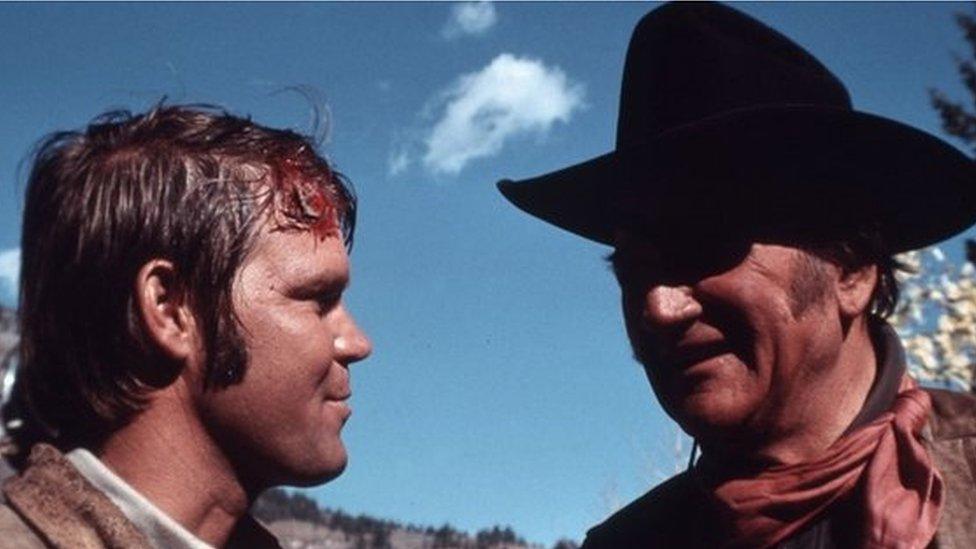
John Wayne invited him to star in True Grit
His big break came in 1967 with the Jimmy Webb song By the Time I Get to Phoenix, which reached number two in the US Country charts.
Campbell's partnership with Webb was to be a fruitful one, as hit followed hit. Wichita Lineman went to No 1 in the US and also broke him in Britain where it reached the Top 10 in 1968.
"Jimmy used to write in the studio as I was recording," said Campbell. "When he sang me the parts of Wichita Lineman he'd written, I knew it was a hit."
The song collected a Grammy and became much requested by US soldiers fighting in Vietnam.
Primetime show
He followed it up with Galveston a year later, which again charted on both sides of the Atlantic.
In January 1969 he started hosting his own primetime TV show, The Glen Campbell Goodtime Hour.
The show, which ran for three years, made him a huge star and his fame encouraged a glittering roster of stars to appear with him.
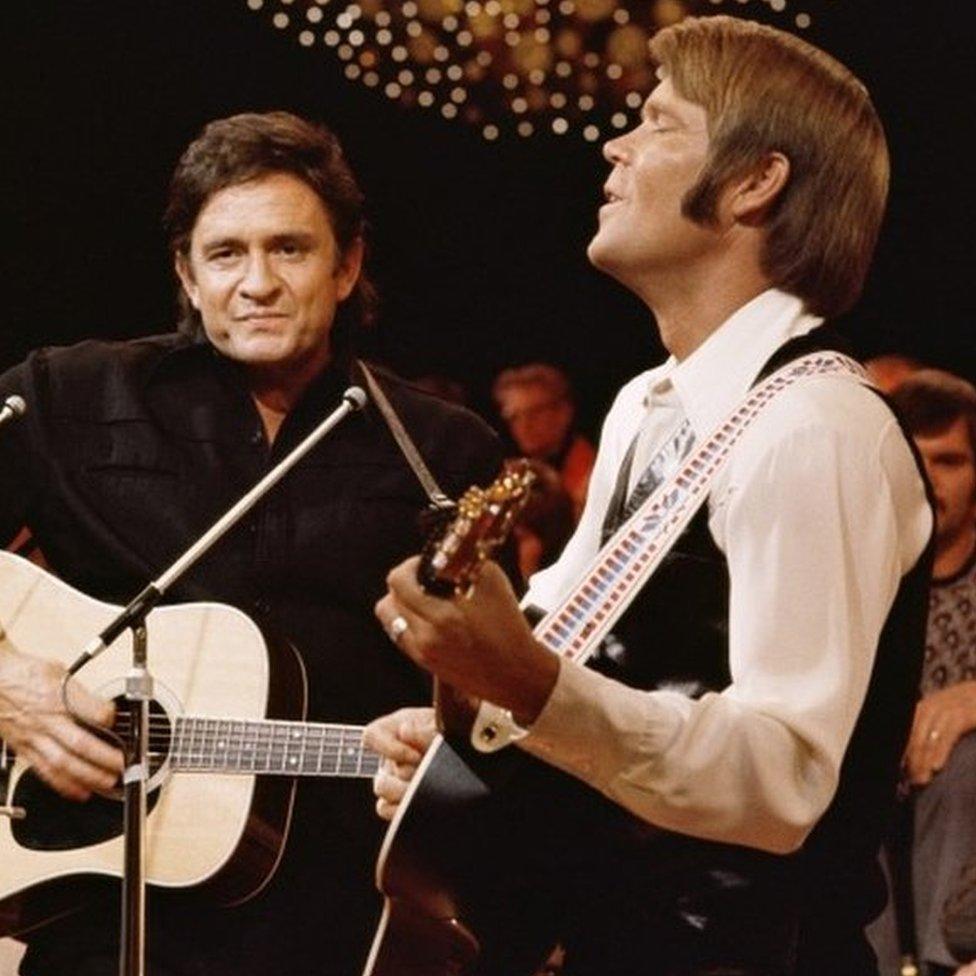
His primetime TV show attracted stars like Johnny Cash
Johnny Cash, Roger Miller, Willie Nelson and the Monkees were among the artists who were guests on the show.
He was also invited by John Wayne, a long time Campbell admirer, to appear in the Western True Grit. He won a Grammy for his performance of the film's title song.
His biggest hit came in 1975 with Rhinestone Cowboy, which reached the Top 10 in a number of countries, including the UK. It coincided with a series of shows on BBC television
There was another smash in 1977, - Southern Nights - but both his career and personal life began to slide. He divorced his second wife in 1975 but a subsequent marriage lasted just four years.
Salvation
While country aficionados continued to buy his records, his mainstream audience had begun to desert him.
He turned to alcohol and drugs for solace. "I was fine when I was doing session work. My schedule then would have killed a horse, so there was no time for drugs," he later said.
"But later on, I didn't have any stability. After a couple of failed marriages, it became a bit of a habit."
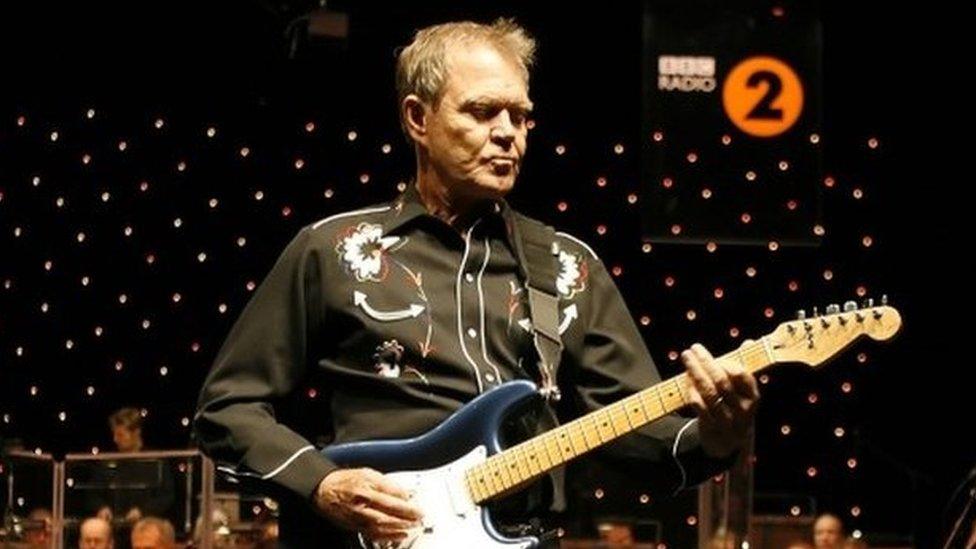
He had a huge fanbase in the UK
His short but high profile relationship with 21-year-old country star Tanya Tucker, 25 years his junior, provided much fodder for the gossip magazines.
His salvation came when he met and married Kim Woolen in 1982 and turned to God.
"I got down on my knees and prayed. And, eventually, I got rid of those demons." Apart from a brief lapse in 2003, when he was jailed for drink-driving, he stayed off the booze and the drugs.
In 2005 he was inducted into the Country Music Hall of Fame. Throughout this period, he continued to play and record and released covers of songs by artists as diverse as U2 and Green Day.
In 2011 Campbell announced he had been diagnosed with Alzheimer's disease and set off on a farewell tour that included an emotional goodbye at the Grammy Awards in February 2012.
"I've accomplished everything I wanted to do," he said in a 2012 interview. "I've been blessed. When I think back to where I came from, I have been able to do some amazing things in my life. And music will always be part of my life."